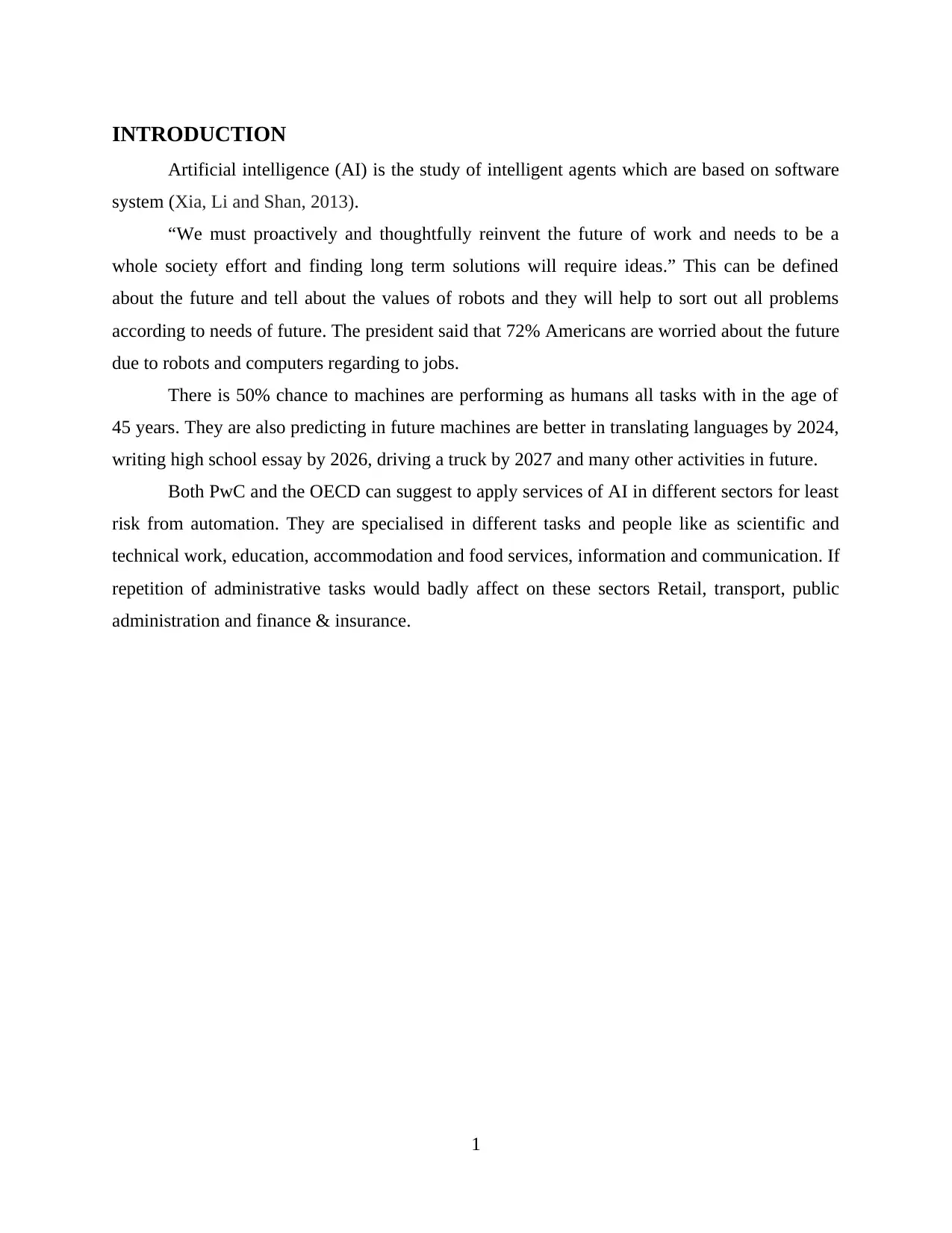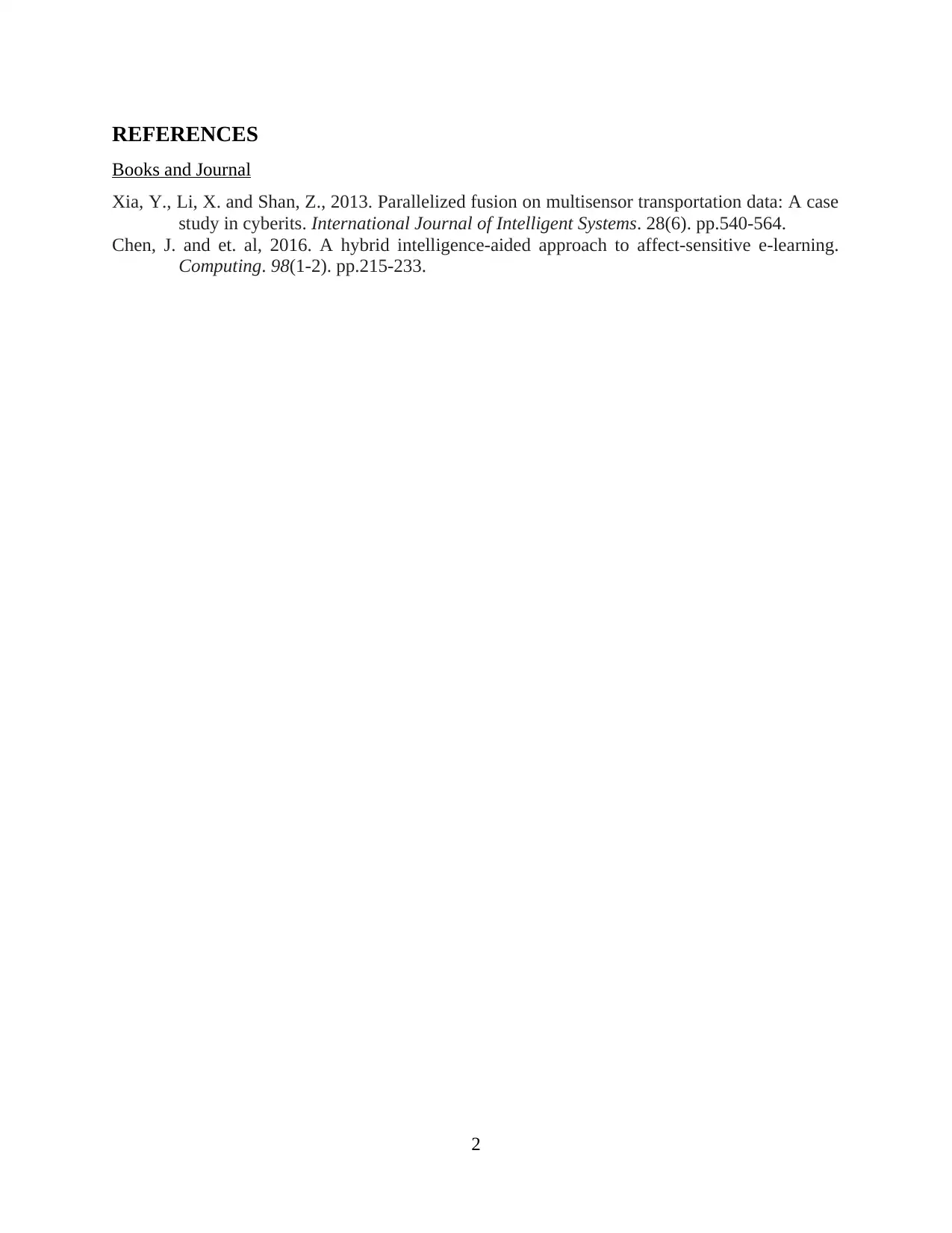Exploring the Impact of AI on the Future of Work: A Case Study
VerifiedAdded on 2021/01/02
|4
|304
|472
Homework Assignment
AI Summary
This assignment delves into the impact of Artificial Intelligence (AI) on the future of work, examining how intelligent agents and automation are reshaping various sectors. The study references research on the potential for AI to perform human tasks, highlighting concerns about job displacement and the need for proactive adaptation. It explores the potential of AI in diverse fields such as scientific and technical work, education, and accommodation, while also considering the risks to sectors like retail and finance. The assignment suggests that AI will transform the job market and future work environments. It emphasizes the need for understanding and adapting to the changing landscape of work in the age of AI, with a specific focus on the need to understand the impact on the future of work.
1 out of 4











![[object Object]](/_next/static/media/star-bottom.7253800d.svg)